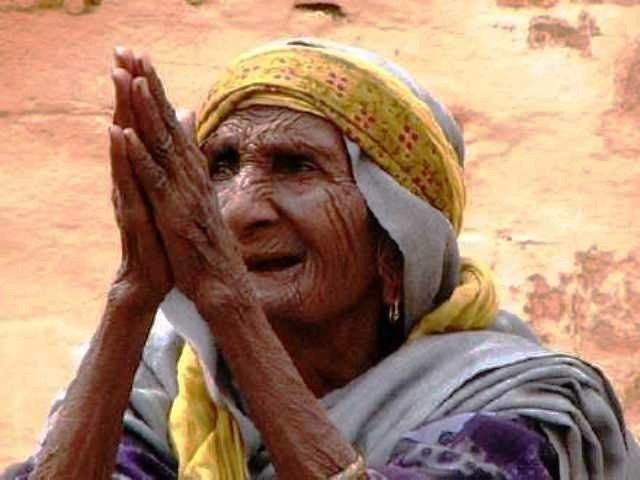Pakistan continues to dominate the headlines in the world media but for all the wrong reasons. Judging from the books that continue to be published, the authors seem to be in a race to tell the most depressing tale they can conjure up.
More than one analyst has called Pakistan ‘the most dangerous country in the world’. While that moniker can be debated, what is beyond debate is that Pakistan is afflicted with multiple ills. The top seven are urban anarchy, load shedding, illiteracy, unbridled population growth, ethnic conflict, Talibanism and Indophobia.
These ills are so common place that most Pakistanis do not wish to discuss them, but they all feel the pain.
Next year’s general elections have given hope that a new leadership will arise and take on these challenges. But the task before it, should it wish to take it on, won’t be easy.
Some of the ills, like illiteracy, unbridled population growth and chronic Indophobia date back to the country’s birth. Some are newer, such as Talibanism, anarchy and ethnic conflict. But all are pernicious and deeply embedded in the nation’s strategic culture. The new leadership will have to make a determined effort to ‘crack the code’.
Nothing will happen without reining in the three oligarchs that have ruled the country for its entire existence; the landed aristocracy, the mullahs and the generals.
The landed aristocracy has resisted all attempts at land reform since it would curtail their power to control the lives of the peasantry.
India did away with the landed aristocracy early in its political history.
It can be done.
As long as the landed aristocracy holds sway, illiteracy will persist. Educated peasants might demand the human and economic rights that have been long denied to them. The lords of the land also want large numbers of peasants to till the soil so birth control among the peasantry is anathema to them.
Then come the generals.
They hold sway over national policy by raising the bogey of an existential threat emanating from India. For years the issue of Kashmir was used to hold aloft this banner. After the military debacle of 1971, the survival of the country was tied to the development of a nuclear program. After the Soviet invasion of Afghanistan, it was tied to the development of die-hard religious militia that would serve at the pleasure of the GHQ. (After the Soviet pullout, the Taliban in Afghanistan were created to provide strategic depth in the west that would help deal with the long-awaited Indian invasion from the east.) But this had many unintended consequences.
As they seek to spread the ideology of pan-Talibanism to the rest of the country, the Pakistani Taliban bring anarchy and lawlessness to the cities. As they intrude into the local power structure, they incite ethnic conflict. In the ensuing chaos, they empower the latent criminal element to begin looting, kidnapping, and murdering the citizenry.
The solution is seven-fold.
First, reduce the size of the army.
It is bloated, inefficient and incompetent. At some 600,000 troops, it is larger than the army with which Napoleon invaded Russia. The army has to be sized to fighting a defensive war. Some 300,000 soldiers should be sufficient for that.
The army needs to focus on enhancing its core competency, which is preventing and winning wars. It has no business running civilian enterprises.
Second, freeze the nuclear program.
Nuclear weapons may have prevented the Indian invasion that never would have occurred anyway. But they are now the biggest threat to national security since every terrorist group is seeking to steal them. Once the nuclear program is frozen at current levels, it will free up much needed resources for education, health and welfare.
Third, extend a hand of friendship to India.
In the early years, the foreign policy was Indocentric. As the conflict over Kashmir festered, it became Indophobic. Now it has morphed into American phobia. Apparently to the mandarins in the foreign office, who ultimately take their cues from the GHQ, India was not big enough to have as an enemy.
Fourth, outlaw and disarm the militias.
The so-called Federally Administered Tribal Areas (FATA) have become the lair for both Taliban and al Qaeda. That has to end. Once that happens, the American drones will stop coming.
Fifth, restore law and order in the cities.
The armed gangs, who are obviously working with the protection of the local police, have to be hunted down, using the methods which have been successfully used in cities such as Chicago and New York, and Sao Paulo and Rio.
Sixth, end load shedding.
Invest in grid modernisation and price electricity rationally. Ban inefficient energy using appliances and light bulbs and cut power theft, as other countries have done by using smart meters. Expand generation capacity by tapping into the nation’s abundant solar and wind resources, not dirty coal, environmentally-harmful hydro or politically dangerous nuclear.
Seventh, amending discriminatory laws
Begin by expunging the Blasphemy Law and the anti-Ahmadi Law from the books and focus on the secular vision that Jinnah eloquently espoused in his August 11 speech at the future State Bank of Pakistan.
Undoubtedly, this is a tall order for the new ‘clean’ leadership that might emerge in the next elections. If it succeeds, Pakistan would be freed from the detritus of its history and re-emerge in the vision of its founders – a secular, western-style democracy with a Muslim majority living in peace with its Muslim and non-Muslim neighbours.
If it fails, Pakistan, which has been staring at the abyss for some time now, may well fall into it.
Follow Ahmad on Twitter @AhmadFaruqui
Re-imagining Pakistan
First of all, reduce the size of the army. It is bloated, inefficient and incompetent!



COMMENTS
Comments are moderated and generally will be posted if they are on-topic and not abusive.
For more information, please see our Comments FAQ